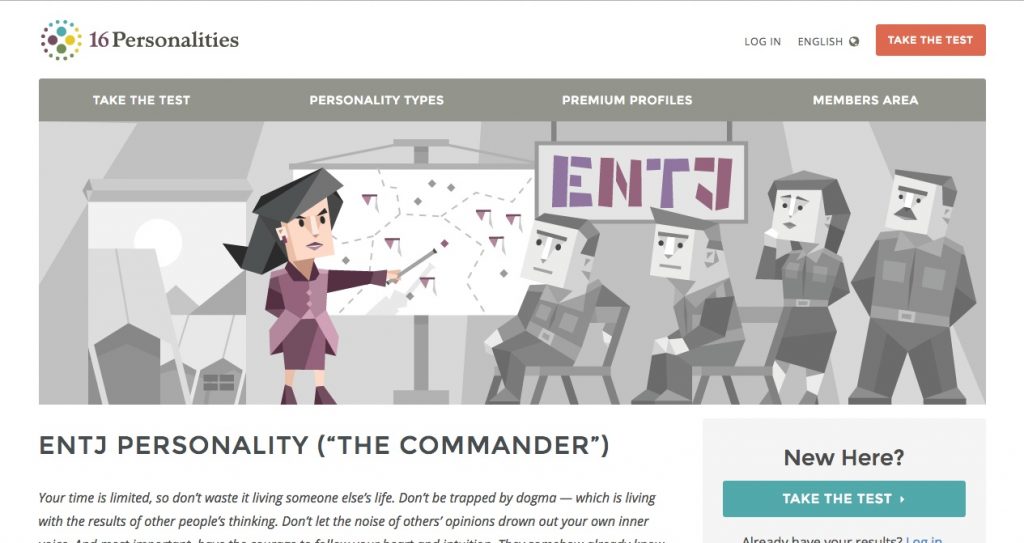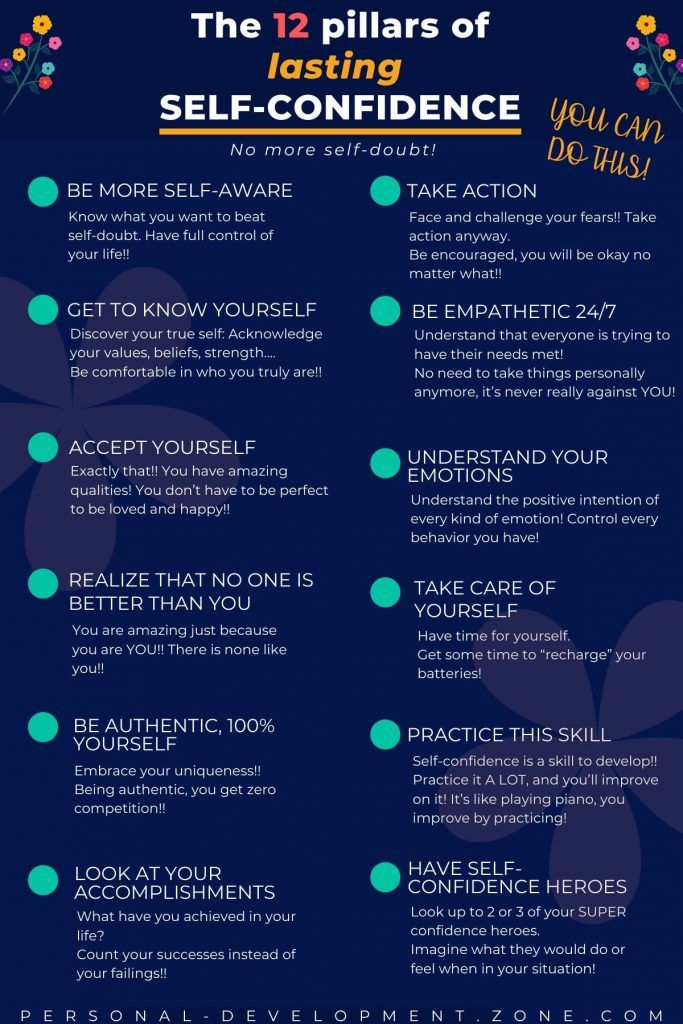Letting go of past mistakes
How To Let Go Of Past Mistakes In 15 Steps [Update 2022]
Letting go and forgiving yourself often seems daunting, especially when we feel that we have done something truly unforgivable. Whatever the case may be, in order to bring ourselves back to a healthy state of mind from which we can do good, it is essential to learn how to let go of past mistakes.
But it doesn’t have to be that way and it can be a lot easier than you think if you are brave enough to take these 15 steps.
For best results, I recommend making these 15 steps a daily ritual.
1.
Allow Yourself To Feel Without Judgment Or ReservationThis is a massively important part of learning how to let go of past mistakes.
Sit with your feelings or take a walk outside and let them come as they will.
Don’t try to push anything out of your mind or tell yourself that things didn’t happen as they did.
Own everything completely and, instead of making excuses or trying to convince yourself that you are either always right or misunderstood, accept that you were simply wrong.
Being wrong does not make you a bad person and being able to recognize your own imperfection is a respectable and honorable trait.
2.
Recognize Your FeelingsYour mind is your home and your feelings are guests there.
Like guests, they will stop by to visit you and to be seen by you.
You may have invited them or they may be dropping in unannounced.
They may enjoy their company or you may politely tolerate it.
Greet them as guests and allow them to have a look around, but remember that your mind is your home and you will still be living there after they leave.
If you need a little more info on this, here is a helpful guide.
3.
Recognize That Your Feelings Are Not Part Of YouThis is another massively important part of learning how to let go of past mistakes and one that is very often and very easily overlooked because people tend to identify with their emotions.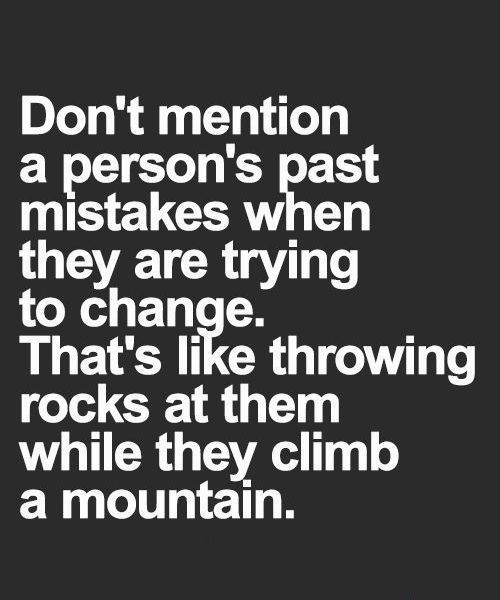
Whatever feelings come to visit you as you sit or walk around your neighborhood, observe them as you would observe a visitor to your home.
Your feelings, like guests in the physical world, may be calm and pleasant or noisy and irritating.
They may be well-behaved or rude and you may find them pleasant or unpleasant.
Remember however that you are not your feelings and you are the master of the house.
4.
Do Not Cling To Your FeelingsIt can be easy to identify with your feelings, but do not allow yourself to be fooled into thinking that your house belongs to one of your guests and not to you.
Do not be hostile to your guests and instead welcome them because they each come bearing lessons that will make you a better person if you listen to them with a truly open heart.
Once a guest has taught you what you needed to learn, thank them and allow them to stay as long as they need to without making any attempt to force them out or convince them to leave.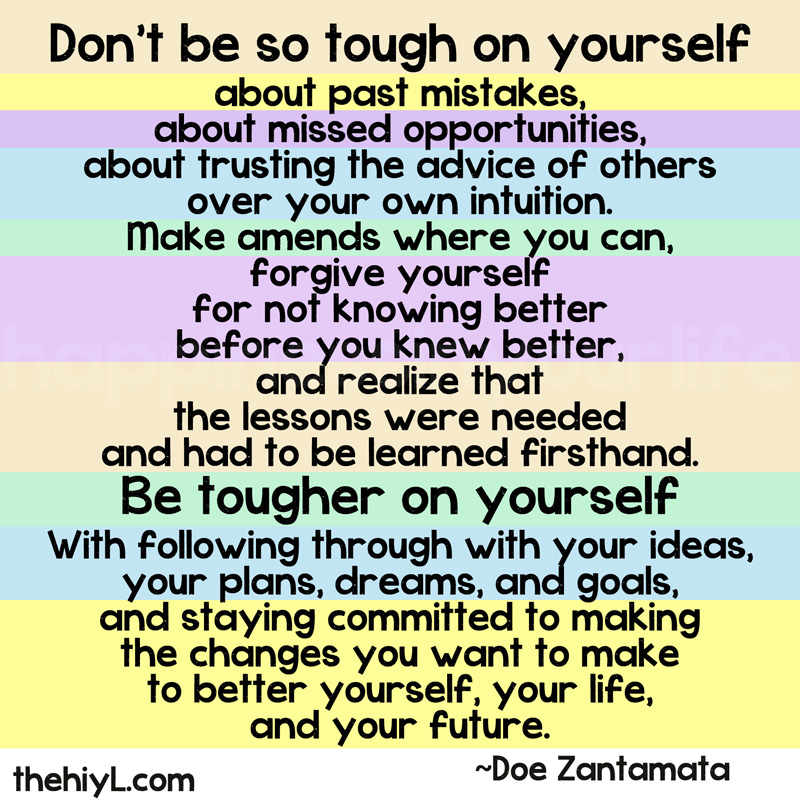
Eventually, they will leave on their own and you will remain in your home with the new understanding that they have given you.
5.
Recognize When You Are Being Too Hard On YourselfYou may have made a mistake and you may have even done it on purpose in a moment of weakness or ignorance, but it is important to keep in mind that your mistakes are not you.
Your mistakes, like your feelings, are temporary and probably more infrequent than you realize.
When you tell yourself things like “I am always doing this,” you are simply being unrealistic.
You don’t always do anything except for breathing.
6.
Identify Where You Are Being UnrealisticWhen we feel bad for any reason, we often tend to say hurtful and inaccurate things to ourselves in order to make ourselves feel even worse because we feel like we deserve it.
Know that, when you do this, you are (probably unconsciously) trying to avoid taking the action that needs to be taken in order to make things right.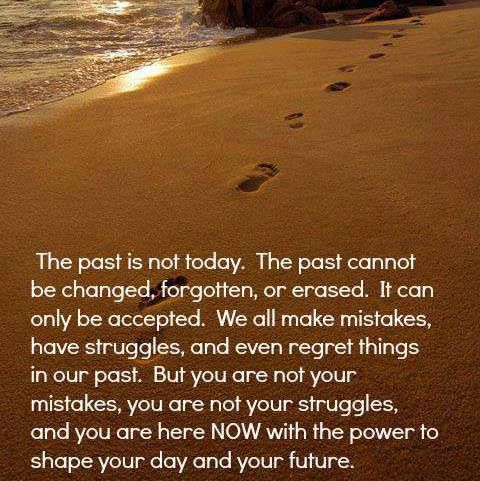
You torturing yourself does not help whoever was hurt or fix whatever was broken.
Instead of indulging in self-harm and bullying yourself, think of ways that you could try to make things right or at least do some good to make up for any bad that you might have done.
7.
Feelings Are Not FactsAnd neither is “perception.”
I know I am diverging from the dominant cultural orthodoxy here, but feeling or believing something does not make that thing true.
Reality is external and exists on its own the way it does regardless of how you or anyone else feels about it.
Believing that you can fly does not in any way alter the law of gravity that will affect you when you jump off a cliff and believing that you deserve to feel bad does not mean that you do.
See and accept things for what they are so that you can handle reality more effectively instead of denying it and suffering the inevitable consequences that come from doing that.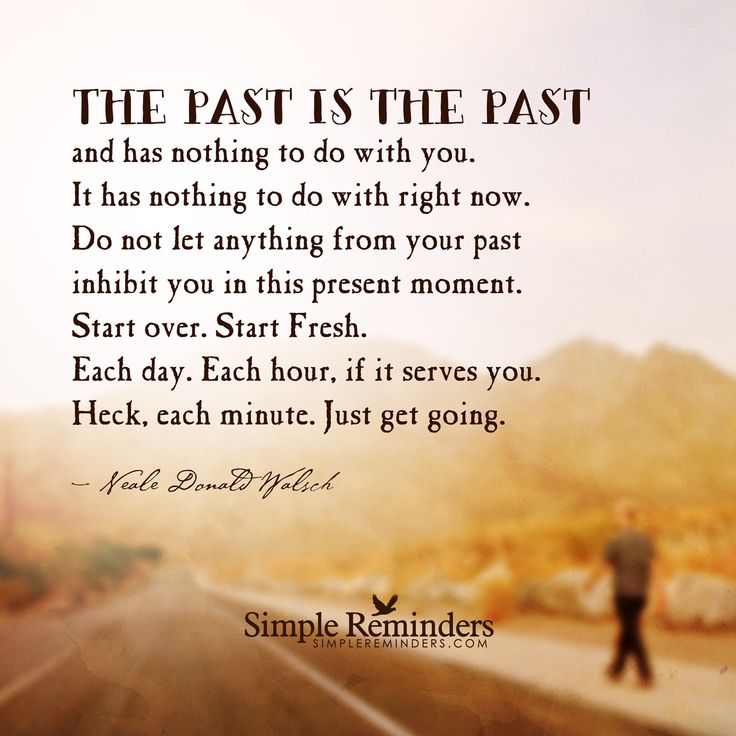
8.
Identify Where Inner Monologue Diverges From RealityYou probably don’t notice when it happens but, when you start seeing it, you won’t be able to stop.
Let’s say that you said something to your friend which hurt their feelings even though that was not your intention and then you tell yourself that you are an insensitive person because of it.
Were you being insensitive during that entire conversation even before you said the thing that hurt their feelings?
What about all of those other conversations you have had with your friend in which you were not insensitive or in which you were at least less insensitive than you were this time?
Have you always been completely insensitive to every person that you have ever talked to?
How is it that one mistake defines you as a completely insensitive person but all of the times when you were sensitive do not define you as a sensitive person?
9.
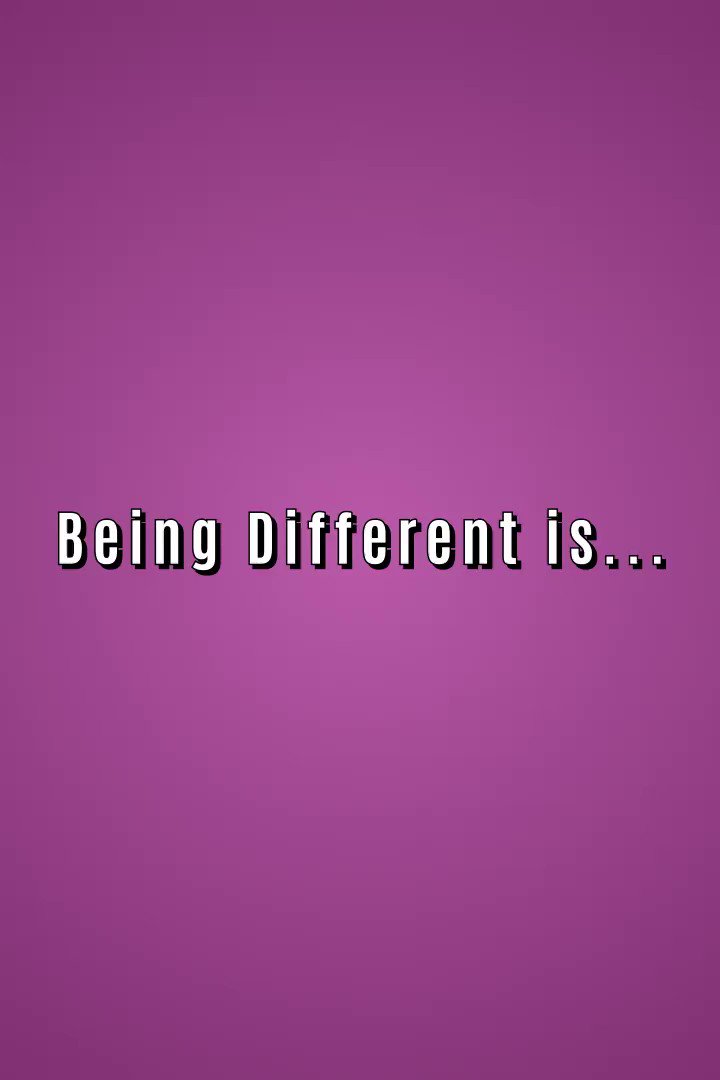 Feeling Is Not A Substitute For Acting
Feeling Is Not A Substitute For ActingOnce you have identified where you are being unrealistic and become more grounded in the facts, you can start to do what will really improve your life and those of the people around you.
Of course, I am talking about real-world action.
It does not have to be anything huge or game-changing and, in fact, it is best to start with small things and with the people who are already around you.
Do a small bit of good every day for those around you whether you know them or not rather than getting political or trying to change the world.
Like in a relationship, it’s the small and thoughtful actions that make the most difference.
10.
Learning How To Let Go Of Past Mistakes = HumanityEmbrace your humanity.
You are a human being with limited knowledge and even more limited experience.
You have made mistakes and you will certainly make many more.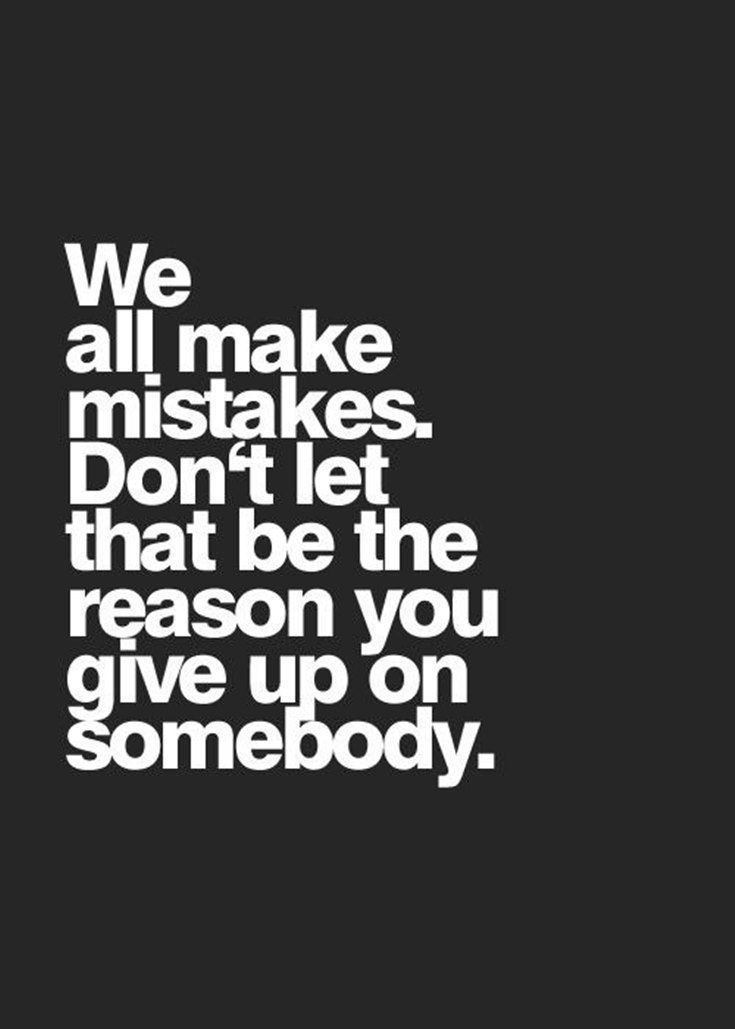
If you don’t expect other people to know everything and be right all the time, why do you expect that of yourself?
Do you believe you have some special ability to always know and do the right thing that they don’t have?
11.
Learning How To Let Go Of Past Mistakes = KindnessBe as kind to yourself as you are to your friends.
Would you say the same things to your friend that you say to yourself if your friend had done exactly the same things that you have done?
If the answer is ‘yes,’ then at least you are fair and consistent.
I respect that.
But if you are being honest with yourself right now, the answer is most likely ‘no.’
So stop being so hard on yourself.
Not every crime warrants a prison sentence.
12.
Learning How To Let Go Of Past Mistakes = KindnessWhen it’s over, let it be over.
This might sound rough but, if you really think on it, you will find yourself feeling lighter and under less pressure:
You are not the center of the universe and, unless you are a globally renowned celebrity or head of state, almost nobody is paying attention to you.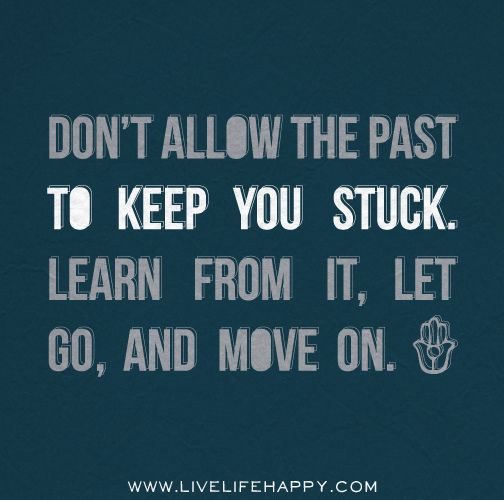
Why must you continue to torture yourself for something you did which has likely already been forgotten by everyone in the world except for you?
Unless you are reading this in the Black Dolphin or some other notorious supermax prison (they let you have internet?), whatever you did was probably not as big of a deal as you think it was.
13.
Keep Things In PerspectiveRolling with the theme of the last step, have you ever thought that you are the worst person who has ever lived?
This is a very common self-abuse statement that many of us make to ourselves when we feel that we have done something wrong and also when we have actually done something wrong.
However, as I mentioned earlier in this list, feeling or believing something does not make it true.
What on Earth makes you think that you are ambitious or sleep-deprived enough to even contend for the title of “Worst Dirtbag Ever” against the likes of Mao Zedong and Pol Pot?
And, since we’re all equal here, how about Darya Saltykova or Ranavalona I of Madagascar who was directly responsible for the deaths of nearly half of all the people in her entire country?
What have you ever done in your life that would qualify you to even be in the running for the “Worst Dirtbag Ever” Top 50 list?
14.
 Forgive Yourself As You Forgive Others
Forgive Yourself As You Forgive OthersYou are not the only person who has messed up in your life.
We have all messed up and hurt people both when we didn’t mean to and when we did.
Just as part of learning how to let go of past mistakes involves recognizing that you actually made a mistake, another part is being able to move past that mistake.
Once you have made a sincere and genuine attempt to make things right and act in a way that puts good into the world, forgive yourself and focus on doing the right thing from now on.
Torturing yourself doesn’t help anyone and only hurts you.
You are more effective at doing good when your mind is clear and your heart is light
If you won’t do it for your own good, forgive yourself for the good of those you can’t help while you’re tormenting and imprisoning yourself.
15.
Don’t Go It AloneWhether it’s a mental health professional, a clergyman, a family member, or a friend, just reach out and don’t think that you have to deal with this all by yourself.
Learning how to let go of past mistakes and how to forgive yourself is essential to living a happy, healthy, and productive life on this planet.
As soon as you begin to put these 15 steps of how to let go of past mistakes into practice on a regular basis, you will gradually begin to see exactly what I mean and you will see your life change for the better.
If you are looking for therapy in NYC click here!
6 Steps To Forgiving Yourself
“At any given moment, you have the power to say: This is not how the story is going to end.” ~ Christine Mason Miller
Sometimes you do or say things you regret. If you’ve experienced this recently, you might be struggling to forgive yourself, especially if your actions hurt someone you love.
A few months ago, I had a falling out with a friend. It happened like most misunderstandings do: swiftly and unexpectedly. I barely had time to comprehend what was happening.
My friend was trying to convince me to join him in a business venture, which I politely tried to decline. After a while of us going back and forth, my patience was wearing thin, and he began to appear less like a friend and more like a pushy salesman.
He then made a comment that I interpreted as a personal insult. I immediately became angry and lashed out. I thought I was justified in my reaction, but upon reflection, I realized that I had misunderstood his words and rushed to judgment.
Even after a follow-up conversation, with my apologies and all, I couldn’t shake the feeling that I had made a terrible mistake. I feared that our relationship would never be the same.
That episode in my life led me to think about the ways we get hung up on our personal failures. They can threaten to keep us stuck in the past and define who we are going forward.
My personal reflection and experience yielded the following seven steps to forgiving yourself:
1. Name what you have done.

Before you can forgive yourself, you must gain some clarity about what happened. Begin by writing down the details of the events and your own actions that contributed to the situation.
Resist the need to blame any other people or external circumstances, and focus only on yourself. You may experience intense vulnerability when you do this exercise. Engage this vulnerability by compassionately owning it rather than suppressing it.
In my own situation, I justified my actions by focusing on my friend’s uncharacteristically aggressive behavior. Once I was willing to focus on my own behavior, I could see more clearly that I had judged his words too quickly.
2. Ask for forgiveness.
Asking for forgiveness is not easy. Your willingness to approach a person you have hurt means you’re admitting you have done wrong and are sorry for it.
Avoid minimizing your responsibility by using phrases like, “I’m sorry if…” or, “I’m sorry but…” I knew that I needed to apologize to my friend and take full responsibility for my actions. I simply named the wrong I had done to him and asked for forgiveness.
I simply named the wrong I had done to him and asked for forgiveness.
3. Forgive yourself every time negative thoughts intrude.
Sometimes we struggle to forgive ourselves, even when we have been forgiven.
After my friend and I had resolved our situation, I continued to experience guilt and negative thoughts about my actions.
I eventually learned that self-forgiveness is not a one-time deal—it’s a gradual process. Every time self-loathing thoughts surfaced, I would take a deep breath and exhale all the negativity I was feeling. You can do some similar act of kindness toward yourself when negative thoughts emerge.
4. Show up and let yourself be seen.
This idea comes from Dr. Brené Brown, whose research on vulnerability and shame has helped many people gain the courage to show up for their lives rather than sit on the sidelines—or worse, hide in shame.
When facing painful personal mistakes, the temptation to shut down and disengage is strong.
I found myself avoiding interactions with my friend because I was afraid he would judge me or remind me of what happened in the past.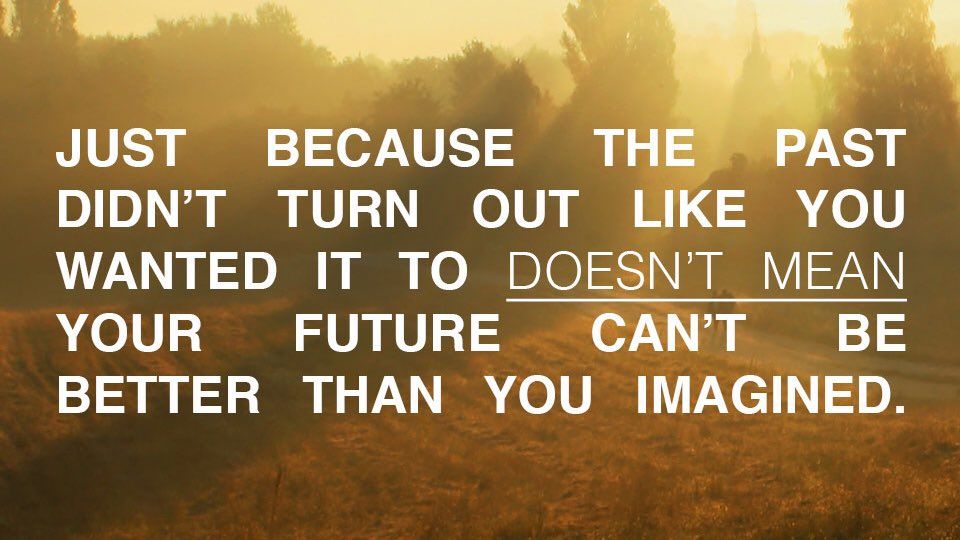 Once I had the courage to show up, I quickly discovered that my fears were unfounded.
Once I had the courage to show up, I quickly discovered that my fears were unfounded.
If you struggle with showing up, know that you have gained much wisdom that can help your future relationships thrive if you have the strength to show up and try again.
5. Be grateful for your mistakes.
It might seem strange to express gratitude for our mistakes, especially the embarrassing and painful ones. But think back to a time when you exercised poor judgment or did something you regretted. How has the experience changed you? Did it make you wiser, stronger, or more discerning?
I learned the dangers of having a quick temper and rushing to judgment. Now when I am upset, I try to give myself some time and space to reflect rather than react. I am thankful for the opportunity to grow in these ways.
And if you can learn to see your mistakes in such a light—as opportunities to grow—you can be grateful for them too.
6. Radically love all of who you are.
Joseph Campbell once said, “The privilege of a lifetime is being who you are. ” So be who you are, not who you used to be. Celebrate who you have become in spite of, or even because of, your past mistakes.
” So be who you are, not who you used to be. Celebrate who you have become in spite of, or even because of, your past mistakes.
My own mistakes and flaws have helped me become a better person to my friend, and that will ultimately strengthen my friendships going forward.
So love all of who you are, including your past mistakes, and you’ll only grow stronger from them.
You Are Worthy of Forgiveness
These steps are not always easy to follow—especially during times when we have truly messed up. But we can recover from our mistakes, learn from them, forgive ourselves, and move on with our lives.
You are worthy of your own love and forgiveness. Believe it with every fiber of your being.
Commit to practicing these steps daily, even on those days when you’d rather not.
Resolve to forgive yourself. Resolve to free yourself of the past. Resolve to live in the present. And look toward the future with hope and optimism.
About Cylon George
Cylon is a spiritual chaplain, musician, devoted husband, busy dad of seven, and author of Self-Love: How to Love Yourself Unconditionally. He blogs about practical spiritual tips for living well at Spiritual Living For Busy People. Sign up and get his free guided meditation on contemplating death to release your fears and live more fully.
He blogs about practical spiritual tips for living well at Spiritual Living For Busy People. Sign up and get his free guided meditation on contemplating death to release your fears and live more fully.
See a typo or inaccuracy? Please contact us so we can fix it!
How to let go of the past and forgive yourself
Forgiveness is a process. In order to forgive yourself for your own past, it will take more than one day, and sometimes more than one month. However, no matter how long it takes you to start from scratch, the main thing is that you really want it. We offer a few simple steps to help you leave the past in the past and embark on a new and exciting journey called a fulfilling life with a light heart.
Mistakes are experiences too
The reason most of us feel guilty or ashamed of past actions is very simple: decisions made in the past no longer match our moral beliefs in the present. We have changed, and now we evaluate what we did and said in the past, from the position of ourselves today.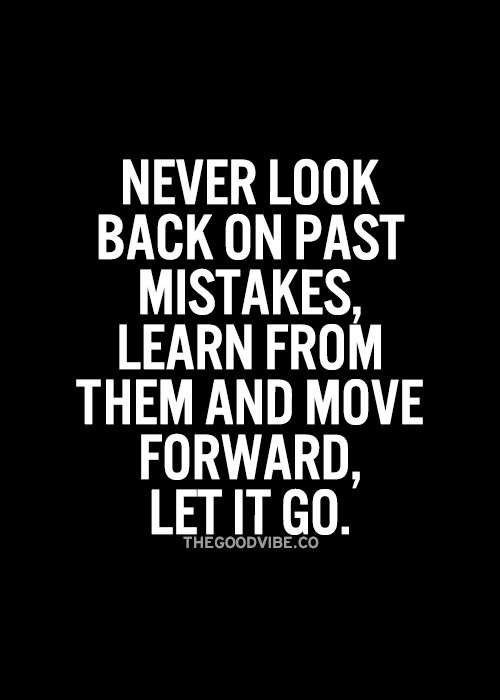 The fact that we have grown and changed is already a reason for pride. So, in fact, the mistakes made once became the “key” to our development - it was they and the feeling of shame for them that determined our morality today. We have learned from our own bitter experience that it is impossible to act as we did, and therefore in the future we will not repeat unfortunate mistakes.
The fact that we have grown and changed is already a reason for pride. So, in fact, the mistakes made once became the “key” to our development - it was they and the feeling of shame for them that determined our morality today. We have learned from our own bitter experience that it is impossible to act as we did, and therefore in the future we will not repeat unfortunate mistakes.
The past is in the past
At first glance, this statement seems obvious and therefore banal, but when it comes to real life, we forget about it and live the same scenario over and over again. We are trying to do the impossible, namely, to change the past, which cannot be subjected to "restoration" for one simple reason - the past no longer exists. The only way out is to accept the past as it is. Acceptance is the only way to recovery.
Make a list of what you would like to "redo"
We never attach importance to this "list". And meanwhile, this is a fairly effective psychological move. Imagine that you have the opportunity to go back a few hours in the past and act differently than you did the first time. Think about what you would do now, what would you say to someone you once offended, or maybe keep silent at all, go a different path, choose a different profession, and so on - you never know the things that we regret years later . Surprising as it may seem, it is precisely such a “debriefing” that will help us get rid of the internal stress accumulated over the years, let off steam, and relax. Allow yourself to “rewind the tape”, analyze your mistakes: a meticulous analysis is a guarantee that in the future you will be able to avoid unpleasant situations.
Imagine that you have the opportunity to go back a few hours in the past and act differently than you did the first time. Think about what you would do now, what would you say to someone you once offended, or maybe keep silent at all, go a different path, choose a different profession, and so on - you never know the things that we regret years later . Surprising as it may seem, it is precisely such a “debriefing” that will help us get rid of the internal stress accumulated over the years, let off steam, and relax. Allow yourself to “rewind the tape”, analyze your mistakes: a meticulous analysis is a guarantee that in the future you will be able to avoid unpleasant situations.
Continue to act in accordance with your moral values
The best thing you can do to say goodbye to your past and stop feeling guilty is to immediately begin to replace your negative thoughts with positive and harmonious ones. Thanks to this, sooner or later you will come to the realization that you can manage almost any situation the way you want it.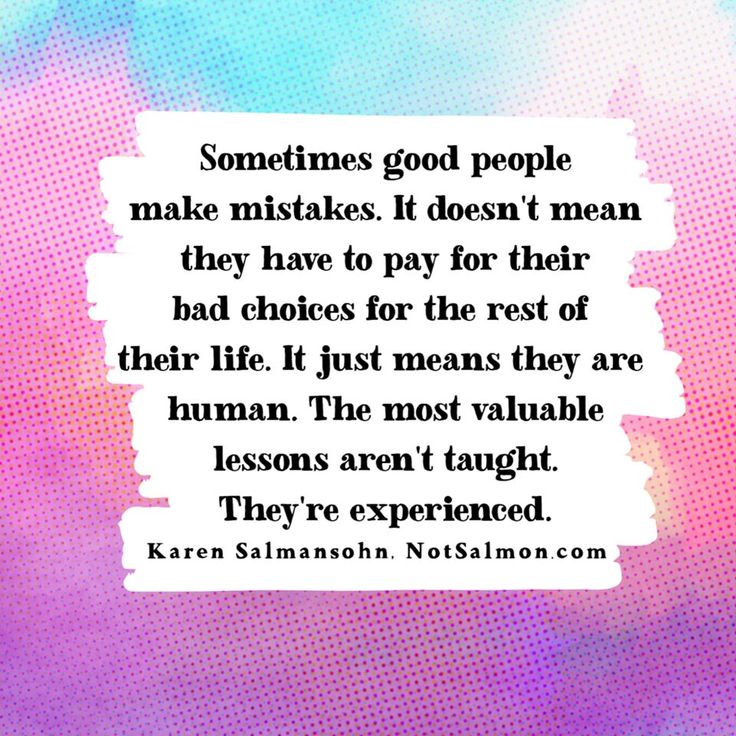 In addition, it will help you enjoy the decisions you make, and seeing a positive result - be proud of yourself. Not so bad for raising self-esteem, you see.
In addition, it will help you enjoy the decisions you make, and seeing a positive result - be proud of yourself. Not so bad for raising self-esteem, you see.
Identify the reasons for your reflection
Once again, returning to the past that burdens you is certainly a difficult and unpleasant task. However, you still have to overcome yourself, because only by turning to face your fears, you can overcome them once and for all. Highlight those moments that are the most unpleasant, oppressive for you, and look at them from the side. Imagine that a situation that once caused you a lot of pain is just an abstract story, not your personal one. Drop emotions, work with the "model" of the situation, not the situation.
Accept the obvious
Some memories that make us uncomfortable are not easy to deal with the first time. This will require a separate and rather lengthy work. Psychologists call this "general cleaning of the mind." This means that the time has come to talk openly with yourself about your experiences, not to be afraid of the past, but to try to cope with it.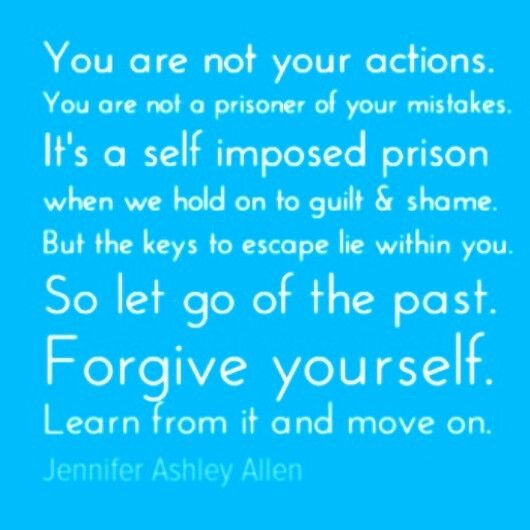 Yes, you made a mistake, because you are not a machine, but a living person. You have the right to make mistakes, you are morally responsible for them, but this does not mean that you should devote the rest of your life to self-flagellation.
Yes, you made a mistake, because you are not a machine, but a living person. You have the right to make mistakes, you are morally responsible for them, but this does not mean that you should devote the rest of your life to self-flagellation.
Turn the page
As mentioned above, the past is gone, realize the fact that it is not possible to completely correct the situation in the present. You did everything in your power to make it better, that's all. The present is the best excuse to turn the page and start over. Life goes on. Your past, no matter how terrible it may have been, helped you become who you are today. Learning to be thankful for the lesson taught is an important step towards forgiving yourself.
Give yourself a break
It takes a few tries before you can master a skill, like riding a bike. From the first time, only a child prodigy can master this or that occupation, and even then not always. The same applies to your thought system: you need time to get comfortable, you need a few tries before you start to get it right. Be realistic - don't rush, give yourself time to learn new things. And one more thing: on the new path, you will also make many mistakes. We all do them.
Be realistic - don't rush, give yourself time to learn new things. And one more thing: on the new path, you will also make many mistakes. We all do them.
Love yourself again
The last step on the path to a new life “without the past” is to love yourself again. Try to become your own best friend, respect yourself, trust your intuition, and most importantly, stop thinking that you are the source of all problems. There are things that, alas, do not depend on us. Look for books on the subject, surround yourself with people you feel comfortable with, and remember that you are stronger than your past mistakes. Believe in yourself, you deserve it.
Photo: Getty Images
Sasha Barinova
How to forgive yourself for past mistakes
19,298
Man and womanPractices how to
I recently went to a reunion with my first husband. There we ran into his colleague whom I had never met before. Mike introduced me: “Meet Christina,” and then, after hesitating, added: “my ex-wife. ” When we were alone, he began to apologize: “I'm sorry I introduced you as an ex-wife. This is a terrible feature. I could introduce you as Molly's mom, but he doesn't know Molly, so I was confused and didn't know what to say.
” When we were alone, he began to apologize: “I'm sorry I introduced you as an ex-wife. This is a terrible feature. I could introduce you as Molly's mom, but he doesn't know Molly, so I was confused and didn't know what to say.
We have been divorced for ten years, each found happiness in a second marriage. I wasn't upset that Mike called me his ex-wife. But I was touched by his kindness and sensitivity, Mike is a wonderful man, now we get along very well with each other. An outside observer would never guess that once the relationship was reduced to an acute conflict filled with anger and criticism.
I could tell hundreds of old stories about what went wrong in a marriage. But most often I was haunted by a story in which the marriage broke up through my fault. I criticized Mike too much, often provoked conflicts. I should have noticed that my claims to him were claims to myself. I had to accept that romance would inevitably fade. And at the same time, I had to work harder to keep the romance alive for as long as possible.
History was filled with fear. I felt like I was being selfish and hurting the kids. She provoked shame and regret, guided me down the slippery slope of self-criticism, made me feel like I wasn't good enough.
Ten years ago I didn't have the skills needed to save a marriage. When I realized this, it became easier for me to forgive myself
For a week after the school meeting, I thought about it. I realized how stupid it is to regret what happened ten years ago, I realized that it was time to let go of old remorse and regret. The three steps I took to get there.
1. Forgive yourself. The recommendations of psychologist Rick Hanson helped me to do this. First, he advises recognizing all the facts associated with the cause of regrets, including those that are not easy to admit. I allowed myself to remember how the divorce went, and thought about those whom it affected then and continues to influence now.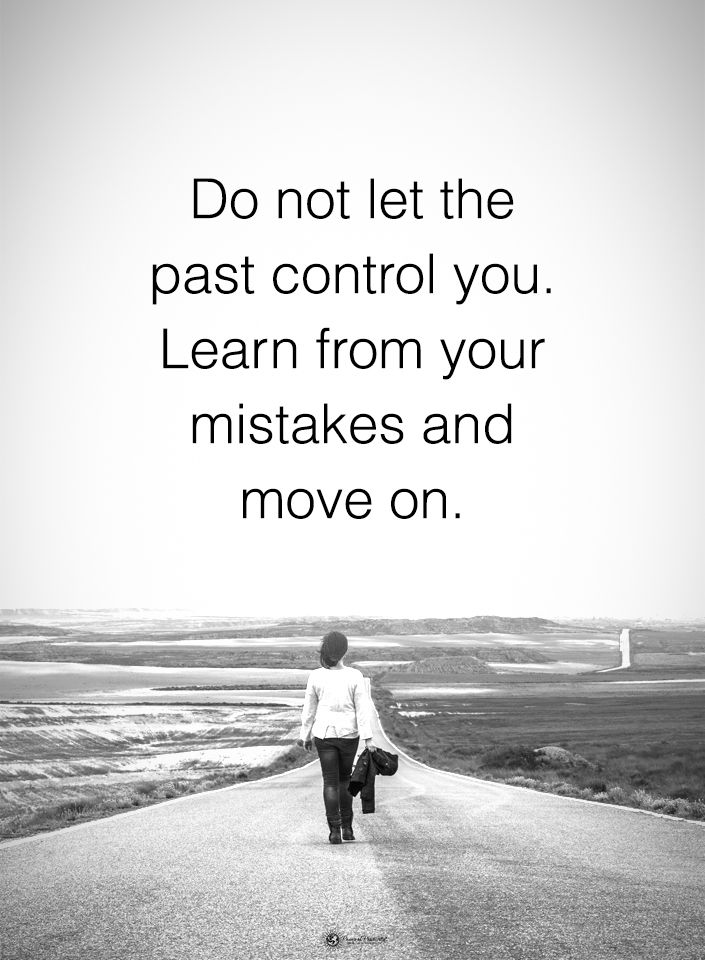
Second, Hanson advises distinguishing between moral wrongdoing and ineptitude. Realizing this difference brought relief. Looking back at a broken marriage, I see a lot of ineptitude. Now I understand that the things that others might consider immoral, I did because of a lack of emotional skills. It turned out that the list of things that I would do differently now is not so long. Ten years ago, I simply didn't have the skills needed to save a marriage. When I realized this, it became much easier for me to forgive myself.
2. Accept responsibility. I see that I behaved ineptly. It allows me to take responsibility for the mistakes I made instead of getting stuck trying to justify myself. At the same time, it doesn't let mistakes define who I am. I am above my mistakes and bad habits. Also taking responsibility gives me a direction for development. Now I can develop and practice the skills I needed back then. It helps build new relationships. Watching Mike and I raise our daughter well, people often ask if we regret our divorce.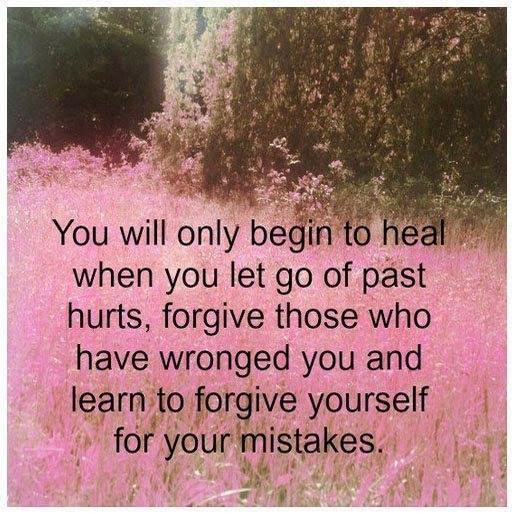 But I understand that now we are not the same people as we were ten years ago. Divorce gave us the opportunity to become more skillful with each other.
But I understand that now we are not the same people as we were ten years ago. Divorce gave us the opportunity to become more skillful with each other.
3. Practice acceptance. This is the forerunner of redemption. I overcame inner resistance and accepted the divorce, my emotional ineptitude, and the bitterness I felt about it. I also found peace and accepted the fact that I don’t know much. I preferred to think that our marriage was doomed from the start, so my actions didn't matter. For ten years I wrote stories that turned my memories into definitive black-and-white pictures. They helped to establish myself in the thought that I did everything right, but it was not so.
I finally accepted the past with all the mistakes. It allowed me to let go of what I had long lost
I don't know how my marriage to Mike would have turned out if I had been more skilled, but if I had made a different choice ten years ago, I wouldn't have my current life that I love in which I am happy and fulfilled. I love my current husband and his large Jewish family, our marriage, even when times are hard. I can't imagine life without my husband's children, whom I adore for no reason. In the same way, my daughters cannot imagine life without half-siblings and two sets of parents. This is a life that I would not consciously give up, but unconsciously gave up every time I cherished old fears and sorrows. I accepted the past along with the mistakes I made. It allowed me to let go of what I had long lost.
I love my current husband and his large Jewish family, our marriage, even when times are hard. I can't imagine life without my husband's children, whom I adore for no reason. In the same way, my daughters cannot imagine life without half-siblings and two sets of parents. This is a life that I would not consciously give up, but unconsciously gave up every time I cherished old fears and sorrows. I accepted the past along with the mistakes I made. It allowed me to let go of what I had long lost.
I manage to lift the veil of the past and focus on the present, the past and stories about it are no longer relevant. I am no longer on an emotional hook, I see my redemption in this.
About the Author
Christine Carter is a sociologist and author of The Sweet Spot: How to Find Your Groove at Home and Work, Ballantine Books, 2015.
Text: Zhanna Omelianenko Photo Source: Getty Images
New on the site
"Once in a lifetime": how to choose a spouse and guarantee happiness - the opinion of a psychologist
A normal man of the 21st century: what is he like? 7 key ideas
Test: Who do you think about more - about yourself or others?
“The future son-in-law behaves strangely.


